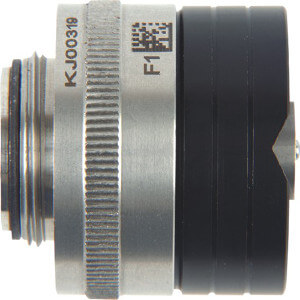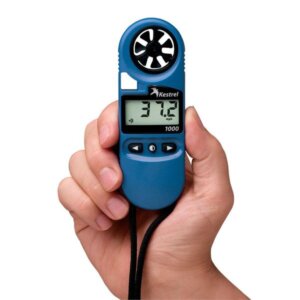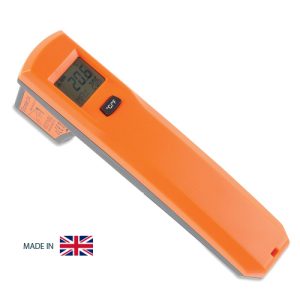All Elcometer 456 probes are fully interchangeable and are available in a number of designs and scale ranges to meet your specific application
Ferrous probes measure non magnetic coatings on ferro-magnetic substrates. Elcometer 456 ferrous gauges accept any ferrous probe. Non-ferrous probes measure non conductive coatings on non-ferrous metal substrates and Elcometer 456 non-ferrous gauges accept any non-ferrous probe. Dual FNF probes measure both ferrous and non-ferrous applications with automatic substrate detection. Elcometer 456 FNF gauges accept all ferrous, non-ferrous and dual FNF probes.
Unless stated, Elcometer separate probes have a maximum operating temperature of 150°C (300°F), PINIP™ probes have a maximum operating temperature of 80°C (176°F).
Every Elcometer 456 gauge and separate probe is supplied with a Test Certificate free of charge. For separate gauges, the test measurements are generated using factory reference probes.
Need more information? Read our page on choosing the correct probe for coating substrates.
PINIP™ Probes
Plug-in probes convert a separate gauge into an integral gauge.Ferrous probes measure non magnetic coatings on ferro-magnetic substrates Elcometer 456 ferrous gauges accept any ferrous probe.
Non-ferrous probes measure non conductive coatings on non-ferrous metal substrates and Elcometer 456 non-ferrous gauges accept any non-ferrous probe. Dual FNF probes measure both ferrous and non-ferrous application with automatic substrate detection.
Elcometer 456 FNF gauges accept all ferrous, non-ferrous and dual FNF probes.
Elcometer probes have a maximum operating temperature of 80° C (176° F) with the exception of separate ferrous probes 150° C (300° F) and Hi-Temperature PINIP’s 250° C (480° F).
The stated temperature is the substrate temperature, and the duty cycle of the probe must be reduced to ensure a minimal temperature build-up within the probe.
All Elcometer probes are supplied with a test certificate and a set of calibration foils appropriate to the scale range of the probe.
All Elcometer 456 probes are fully interchangeable and are available in a number of designs and scale ranges to meet your specific application
Ferrous probes measure non magnetic coatings on ferro-magnetic substrates. Elcometer 456 ferrous gauges accept any ferrous probe. Non-ferrous probes measure non conductive coatings on non-ferrous metal substrates and Elcometer 456 non-ferrous gauges accept any non-ferrous probe. Dual FNF probes measure both ferrous and non-ferrous applications with automatic substrate detection. Elcometer 456 FNF gauges accept all ferrous, non-ferrous and dual FNF probes.
Unless stated, Elcometer separate probes have a maximum operating temperature of 150°C (300°F), PINIP™ probes have a maximum operating temperature of 80°C (176°F).
Every Elcometer 456 gauge and separate probe is supplied with a Test Certificate free of charge. For separate gauges, the test measurements are generated using factory reference probes.
Need more information? Read our page on choosing the correct probe for coating substrates.
PINIP™ Probes
Plug-in probes convert a separate gauge into an integral gauge.Ferrous probes measure non magnetic coatings on ferro-magnetic substrates Elcometer 456 ferrous gauges accept any ferrous probe.
Non-ferrous probes measure non conductive coatings on non-ferrous metal substrates and Elcometer 456 non-ferrous gauges accept any non-ferrous probe. Dual FNF probes measure both ferrous and non-ferrous application with automatic substrate detection.
Elcometer 456 FNF gauges accept all ferrous, non-ferrous and dual FNF probes.
Elcometer probes have a maximum operating temperature of 80° C (176° F) with the exception of separate ferrous probes 150° C (300° F) and Hi-Temperature PINIP’s 250° C (480° F).
The stated temperature is the substrate temperature, and the duty cycle of the probe must be reduced to ensure a minimal temperature build-up within the probe.
All Elcometer probes are supplied with a test certificate and a set of calibration foils appropriate to the scale range of the probe.

 0 items
0 items



